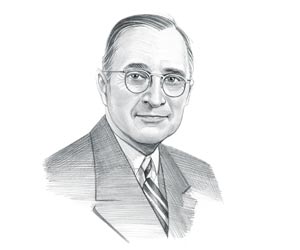|
|
|
|
|
The 77 million babies born between 1946 and 1964 are referred to as the Baby Boomers. The years of the Baby Boomers saw the largest ever increase in the U.S. population, stimulating the post-war economies and producing a substantial rise in demand for consumer goods. The Baby Boomers represent nearly 20% of the U.S. population, and have a significant impact on the economy. Baby Boomers are an affluent group and now make up 70% of the nation's disposable income. As a result, the Baby Boomers are often the focus of advertising, marketing campaigns and financial and business planning. Facts about
Baby Boomers Total births per year in the United States during the period from 1946 - 1964 grew from 2.3 million to 4.3 million and then fell to 3.1 million. There were many factors that contributed to the Baby Boom, but the most important factors were the end of the Depression (1929 - 1939), the end of WW2 (1939 - 1945 ) and the end of the Korean War (1950 - 1953). Devastating wars and periods of economic recession result in a fall of the birthrate. The end of such events are greeted with a new sense of optimism in a booming postwar economy and young couples, who had delayed marriage, could now marry, buy their own homes and begin to raise their own families. The U.S. government encouraged the growth of families by providing generous provisions for returning GIs, to make young couples feel able and willing to support children. The Servicemen's Readjustment Act of 1944, popularly known as the "GI Bill of Rights", provided low-cost mortgages and low-interest loans for buying or building homes and by the end of the duration of the act in 1956, 4.3 million home loans had been guaranteed by the government. The G.I. Bill also financed a well-educated work force and the middle class swelled. By 1956, for the first time ever in the history of the United States, white-collar workers outnumbered blue-collar workers. Between 1946 and 1956 the average income of American families nearly tripled. $200 billion in war bonds matured, and the period from the end of World War II to 1964 saw the rise in consumerism as people were increasingly influenced by advertising in magazines and television and popular culture celebrated parenthood, pregnancy and large families. People had money to spend and the economic boom led to a rush to purchase new, inexpensive homes in the suburbs to obtain better housing and a higher standard of living. The number of Americans buying their own homes rose form about 40% to 60%. The parents of the Baby Boomers had suffered great levels of discomfort and uncertainty throughout their generation. As a result they influenced the children to place a high value on security and comfort. The Baby Boomers enjoyed a lifestyle and standard of living that had never been witnessed before. Their homes were filled with the latest appliances and luxury items and many families had enough disposable income to purchase a second car. New, sophisticated, advertising techniques were used to tempt affluent consumers and companies employed elaborate marketing campaigns across the media to sell their brands and encourage people to develop material aspirations. The baby boomers were the first generation of American children and teenagers with significant spending power fueled the growth of massive marketing campaigns and the introduction of new, recognized branded products. Marketeers focused on the prospect of gaining a young consumer with lucrative, long-term potential. Marketeers once focused on the prospect of gaining a young consumer with lucrative, long-term potential but the situation has now changed and emphasis has shifted to attracting and prioritizing to the age group that now boasts the greatest disposable income - the Baby Boomers Retirement incomes will be 50-60% higher above those of today's retired people and by 2030 there will be 3 retired baby boomers for every 10 workers. It is estimated that Baby Boomers are will inherit $13 trillion in the next 20 years. Between 8,000 and 10,000 Baby Boomers reach the age 65 years old every day in America. This generation of senior citizens don't look their age and donít want to be reminded of their age. They focus on their accomplishments and their future. They are also interested in, and making use of, new technology. Their group spends the most money online and are the most valuable generation in marketing and are the second greatest users of the internet with over 8 million spending over 20 hours per a week online. Their core values are based on their formative years that enable them to value and evaluate brands. The group determine retain persistent brand loyalty and many marketing experts are coining the phrase "Nostalgia is profitable!" The group are also strongly influenced by loyalty programs, value for money products and customer support. They also have time to spend on hobbies and expensive leisure activities such as travel. They also have the money to spend on expensive cars. Marketing trends are changing, attracting and prioritizing the more lucrative group of older consumers who will soon control 70% of the nationís disposable income. The Baby Boomers should not be associated with the past, they should be closely connected with the future. |
| US American History |
| 1945-1993: Cold War Era |
|
|
|
|
|
First Published2016-04-19 | |||
|
Updated 2018-01-01 |
Publisher
Siteseen Limited
| ||
|
|

